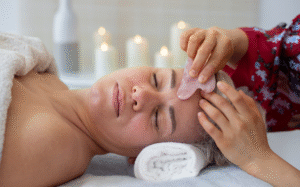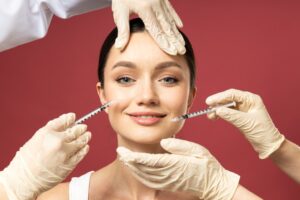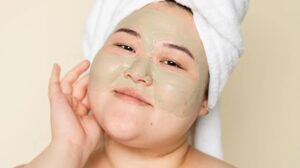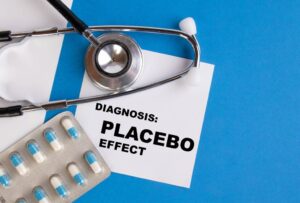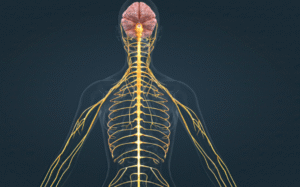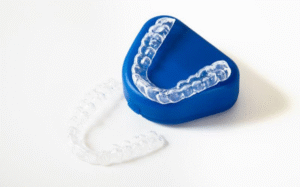Do Hair Growth Supplements Really Work?

You may be familiar with hair growth supplements that promise to give you full, luscious locks, but do these items actually work? Supplements for hair growth are a common “therapy,” regardless of whether you have thinning hair or simply wish your mane to be a little longer.
We would all take advantage of a magic medication and have Rapunzel-like hair if it existed. We are dubious about whether or not we are taking placebos because that is obviously and regrettably not the case.
Continue reading to learn more about hair growth pills and their efficacy.
If you’ve noticed that your hair is thinner than it used to be, you may be looking for vitamin supplements or hair growth solutions to help you get it back. Vitamins for hair growth are made to strengthen existing follicles and encourage the creation of new hair.
Celebrities and social media influencers claim that these products are all-purpose hair treatments. Will they, however, actually stop hair loss?
The correlation between vitamin inadequacies and healthy hair is real. The evidence supporting magical hair growth pills, however, is insufficient. Here are some facts concerning hair growth supplements and advice on whether or not to buy them.
What Are Supplements for Hair Growth?
Numerous elements, such as heredity, stress, hormones, illnesses, and nutrition, have an impact on hair health.
The many concerns you can experience are correlated with the various forms of hair supplements. Supplements, according to Dr. It can be categorized into those that replenish true deficiencies or insufficiencies, others that decrease inflammation, others that reduce oxidative stress, others that improve gut health (which in turn prevents more potentially inflammatory molecules from entering the body and affecting hair), those that reduce hormonal influences that impact hair loss, and those that decrease inflammation.
Vitamins (especially vitamins A, C, and several B vitamins), minerals like zinc and selenium, botanical substances like saw palmetto, and dietary components like collagen powders and fish oils are frequently used in hair development supplements.
Ashwagandha, curcumin, vitamin E, saw palmetto, and other supplements really “supplement” when there are vitamin or mineral deficiencies, while others operate as powerful antioxidants. Some supplements also attempt to increase one’s capacity to withstand stress.
Are Hair Supplements Effective?
We’re sorry to dispel this misconception, but according to physicians, most people don’t benefit significantly from hair supplements. I don’t really believe in any of the available hair supplements.
I do believe that there is accumulating evidence that iron supplementation is necessary for hair development in some women with documented low ferritin [the protein that stores iron] levels, Dr says. But before taking iron, Dr recommends you to speak with a doctor because consuming too much iron might seriously harm your liver.
Despite the fact that biotin is a frequent ingredient in many hair supplement products and you may have heard of it, it’s crucial to understand that its main function is to strengthen hair.
Another vitamin that is frequently suggested, particularly for women of color, is biotin since it is thought to help with hair breakage. Many people believe it to be beneficial for hair thinning, but biotin deficiency actually causes hair breakage rather than hair loss.
In all honesty, there isn’t much solid evidence to suggest that biotin promotes hair growth in healthy individuals.
How to Deal with Hair Thinness
If you have hair loss as a problem, it’s critical to identify the cause before deciding on a course of treatment. To find out which medication is best for you, discuss the potential causes of your hair loss with your doctor.
Do you experience hair loss as a result of hormonal changes? Do you suffer from a skin problem that leaves you with noticeable bald patches? Or have you processed your hair too much to the point where it is brittle, breaking, and just falling out? It’s crucial to comprehend the cause of your hair loss or thinning before choosing any products, advises Dr.
According to both experts, Rogaine is the best hair growth product available if you need a thickening or growing agent regardless of the cause of hair thinning. Rogaine’s specific mechanism is still unknown, but studies have shown that it lengthens the hair’s growing phase and increases the size of follicles that have diminished. This causes the hair to gradually re-thicken.
How can I tell if I’m vitamin deficient?
Hair health is influenced by vitamins and minerals, and vitamin deficiencies can contribute to hair loss. There are numerous symptoms that can indicate a serious vitamin deficit. It was broken down into a few common deficits and their potential effects to give you a better picture.
Vitamin C shortage: Hair splitting, bleeding gums, nosebleeds, delayed wound healing, and difficulty battling infections are all results of this.
A lack of niacin: can result in a scratchy rash on skin exposed to the sun, headaches, nausea, and diarrhea, as well as exhaustion and sadness.
Vitamin A shortage: This may result in breakouts, dry skin, dry eyes, night blindness, and delayed growth.
Using blood tests, vitamin deficiencies can be identified. Except for people who adhere to stringent diets, such as vegan diets, they are unusual. To ensure they get enough of the vitamins that come from animal sources, vegans may need to take supplements. Another factor that can increase the risk of vitamin D insufficiency is severe sun avoidance.
How Can I Encourage My Hair to Grow?
Although taking vitamins for your hair is probably not a good idea, there are other things you can do to promote the growth of stronger, healthier strands.
Consume Foods Full with Fatty Acids
Omega-3 fatty acid-rich foods, such as salmon, can provide luster, flexibility, and gloss to dull hair, which can assist dry, damaged hair.
Consider a multivitamin
The B vitamins, particularly B6, B12, and folate, may promote hair growth. A doctor should always be consulted before taking any kind of supplement.
Invest in a thickening shampoo
This shampoo has been enriched with vitamins, herbs, and bioactive elements in order to strengthen hair and encourage strong hair development.
Conclusion
In the end, there is not much evidence to back up the effectiveness of hair supplements. The best course of action for those wishing to treat thinning hair is to visit their doctor to learn the cause of the hair loss and the available treatments. While it is possible that thinning or less-than-lustrous hair is caused by a vitamin shortage, a balanced and healthy diet can help you feel and look better.
Infographic created by Boston Analytical, Experts in Analytical Validation & Development


